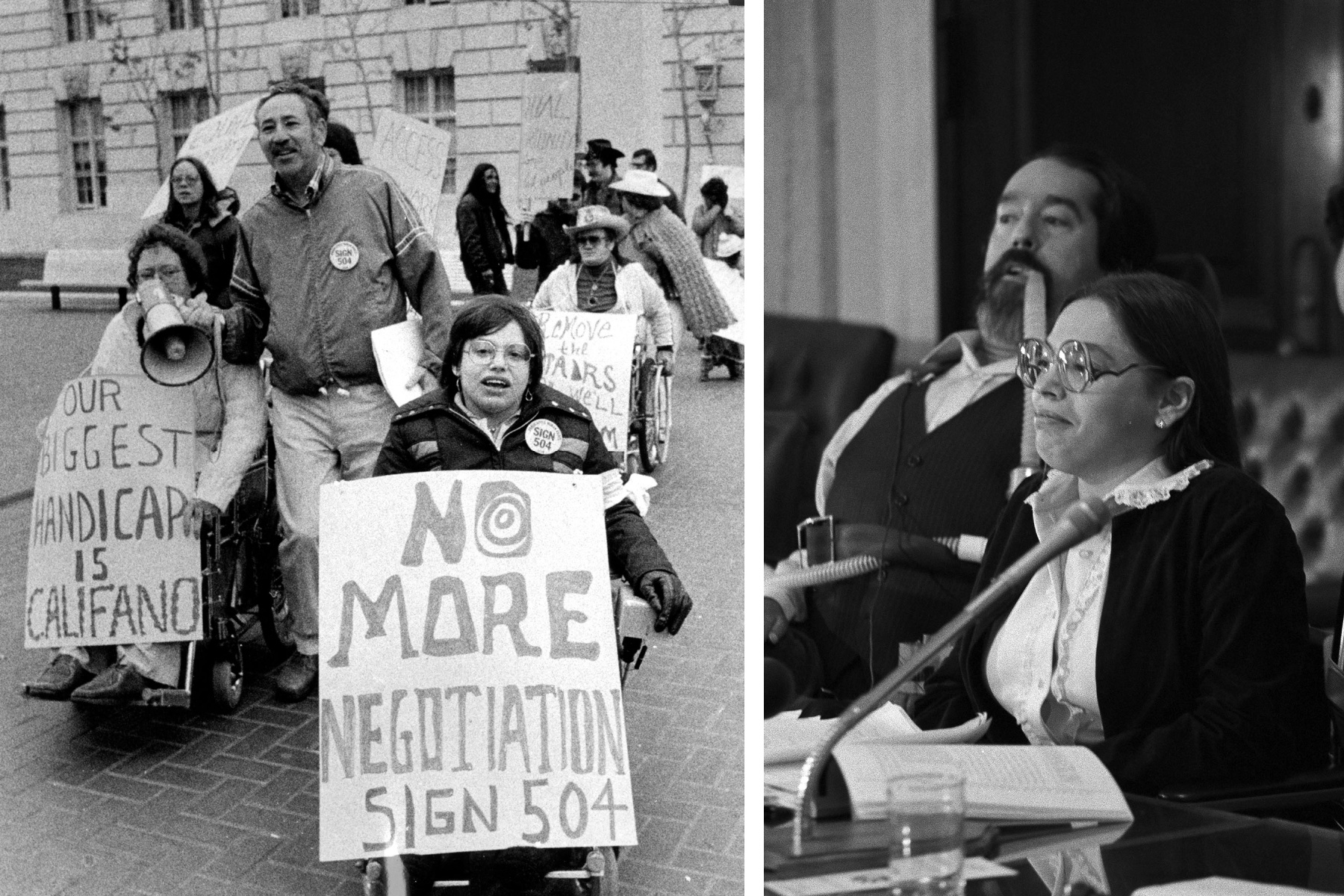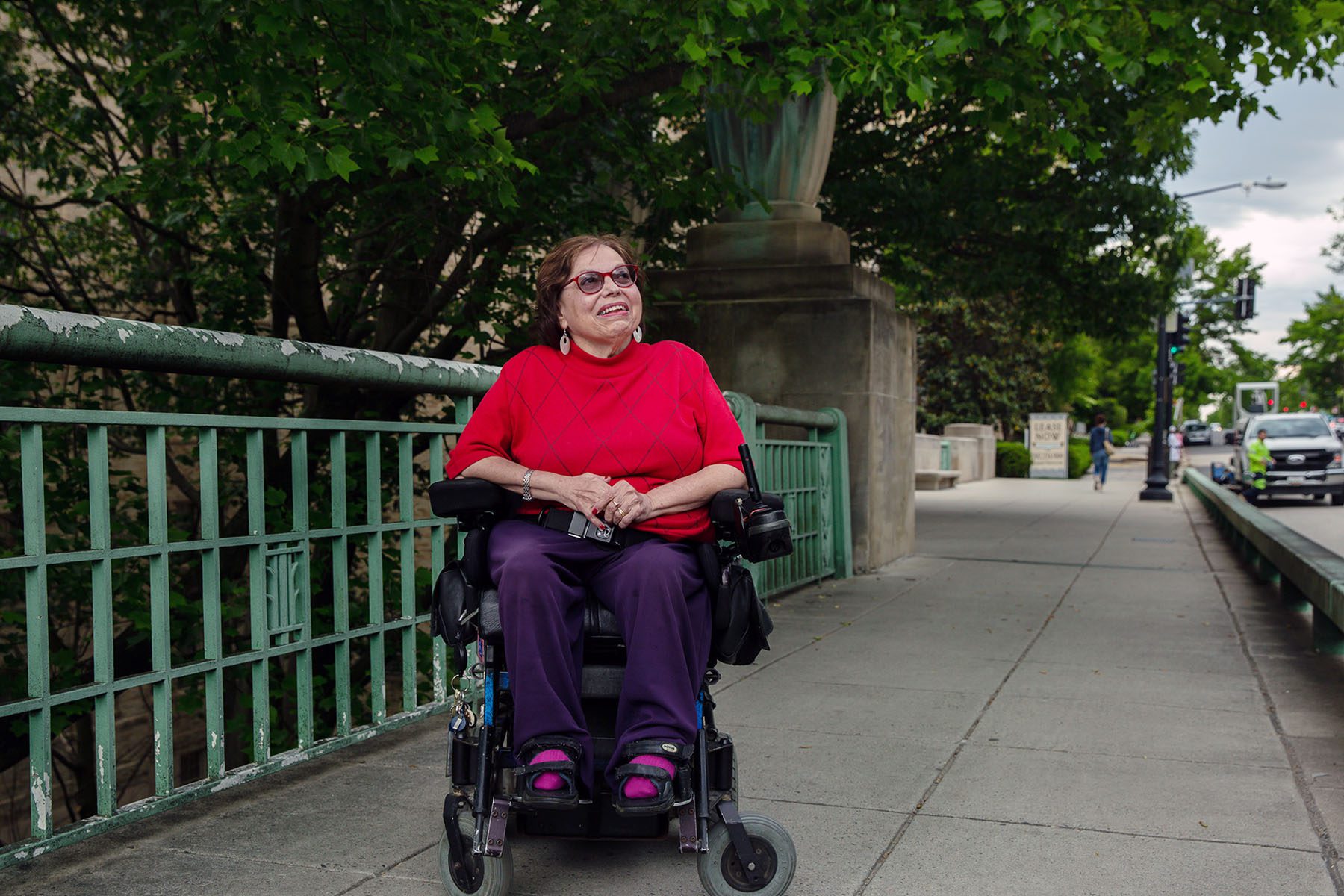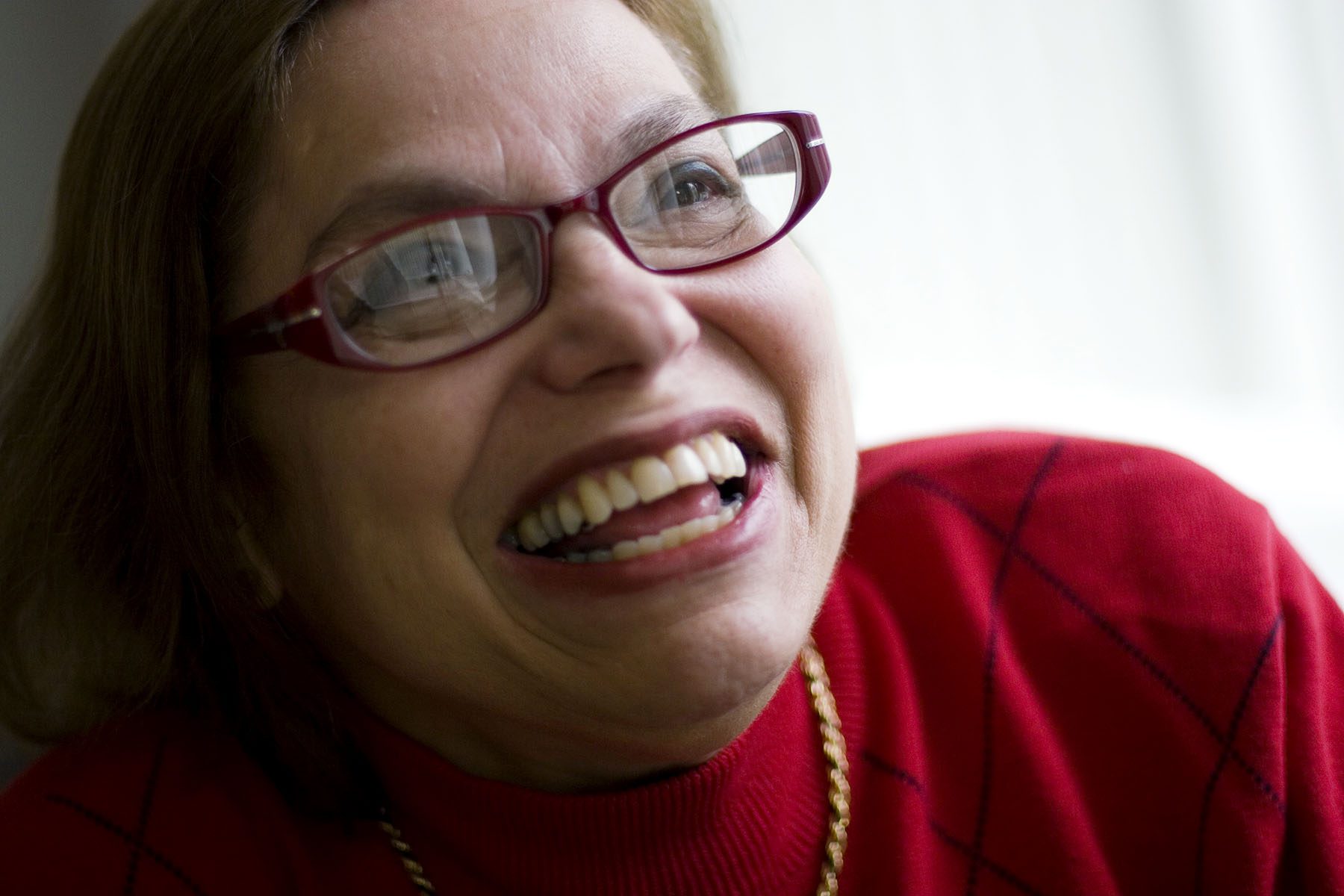We’re telling the untold stories of women, women of color and LGBTQ+ people. Subscribe to our daily newsletter.
Judy Heumann, known as the mother of the disability rights movement, died on Saturday at the age of 75 in Washington, D.C. Heumann is perhaps best known for leading the longest occupation of a federal building in American history, paving the way for some of the first government laws and regulations guaranteeing equal access for people with disabilities. She went on to serve in the administrations of Presidents Bill Clinton and Barack Obama. Her story was featured in the Oscar-nominated documentary “Crip Camp.”
Within the disability rights community, Heumann was known for fostering and encouraging future generations of leaders, particularly younger disabled women. The 19th interviewed five of Heumann’s friends and mentees about her legacy and impact.
Ari Ne’eman, 35, is a doctoral candidate at Harvard, studying health policy. He co-founded the Autistic Self-Advocacy Network, one of the largest organizations run by and for autistic adults in the United States. He and Heumann were close friends — she gave one of the traditional seven Jewish blessings at his wedding.
“She was someone you could always call and shoot the breeze with, someone who always wanted to know what was going on in your life,” Ne’eman said, noting that her interest was genuine.
“D.C. is a town that is very frequently transactional,” he continued. “Judy wasn’t one to approach relationships from a transactional perspective. She was a connector. She wanted people who wanted similar things to be connected with one another. But it was very easy to talk about nothing specific and leave the conversation feeling very happy.”
He recently interviewed Heumann for a forthcoming book on disability history in the United States. During that interview, he asked Heumann how she wanted to be remembered by historians.
-
More from The 19th
- ‘Black Disability Politics’ argues that not all disability activism looks — or functions — the same
- Lois Curtis’ legacy lives on in the people with disabilities whose lives she’s transformed
- Supreme Court case altering Medicaid is ‘an assault’ on older adults and people with disabilities, advocates warn
He shared the recording with The 19th, and in it, Heumann stressed that she wanted to be remembered as a “fighter for the rights of disabled people,” but also emphasized the need for the movement to remain dynamic.
“I believe more and more that our movement can’t be isolated. That we need to be part of a changing world. We have to look at issues like global warming and the environment. I think you have to be in a position where you’re ahead of the game and not trying to catch up to a game that keeps changing,” Heumann said.
Taryn Williams, 41, is assistant secretary of the Office of Disability Employment Policy, an agency within the Department of Labor. She is one of many disabled leaders whose careers were encouraged and guided by Heumann.
“[Judy Heumann] was a consistent source of advice and support as I navigated my career in disability policy. But I should note, there are many, many of us who benefitted from her extraordinary leadership,” she told The 19th.

Right: Judy Heumann takes part in a press conference in Washington, D.C. to call attention to cuts in funding to disability programs by the Reagan administration in October 1982. (Vince Maggiora/San Francisco Chronicle/Getty Images; John Duricka/AP)
Maria Town, 35, is president of the American Association of People with Disabilities and served in the Obama administration. She was born with cerebral palsy, a developmental disability that impacts her mobility.
“Judy had an impact on everyone she interacted with, from every kind of organization she engaged with … There are so many people who got their start because of Judy, who met their mentors because of Judy,” Town said.
Town first met Heumann in 2010 at the funeral of another disability rights leader, Paul Stephen Miller.
“[The meeting] was very quick. She was surrounded by people at the time,” she said. But eventually, their relationship grew.
“Judy would call me at all hours of the day. She wanted to know about my thoughts on issues. She wanted to borrow my lipstick,” Town said.
Heumann encouraged Town to be confident in her own power.
“When I was first starting out working in the White House, I was so overwhelmed and had so much imposter syndrome. And then I talked with Judy, and she said I had the skills to do this. I’d say things like, ‘I’m not a big deal,’ and Judy would say, ‘No, you are.’ She would not accept me minimizing my own ability,” Town said.
Claudia Gordon, 50, is deaf and served in multiple roles during the Obama administration. She is now a senior accessibility strategist at T-Mobile. In September, President Joe Biden appointed Gordon the vice chair of the National Council on Disability.
Gordon does not remember the first time she met Heumann but says it was during Gordon’s first years as a student at Howard University.
“I can’t remember my life without Judy in it,” Gordon said. She described her relationship with Heumann as, “like that of a big sister or a caring mom.”
“She took great interest as well as pride in my career progression. At times we’d be in the midst of a conversation in her kitchen when she would pull out her phone, place a call or send an email to someone on my behalf,” Gordon said.
Rebecca Cokley, 45, is the U.S. disability rights officer for the Ford Foundation and served multiple roles in the Obama administration. She was born with achondroplasia, a common, hereditary form of dwarfism. Her parents also had dwarfism, and her family has a rich legacy in the disability community.
“I met Judy when I was about six years old. My godmother, Ann Cupolo-Freeman, was Judy’s best friend, and my mom and I would spend weekends with Annie in Berkeley. I’d ride around on the back of her power chair and met Judy one of the times she was back in town,” Cokley said.
Her relationship with Heumann was not always smooth — sometimes there were disagreements.
“We had a period where we didn’t talk for a couple years because I thought she was completely wrong about something tied to how we demonstrate cross-movement solidarity and I told her so, in a meeting. It served to make me even more committed to working in a different way than Judy did. When we reconciled, she asked if I changed my mind and I told her, ‘No, I’m doubling down on thinking you were/are wrong.’ And her response was, ‘Fine, when can we take the kids to the zoo?’ And that was it,” Cokley said.
In terms of Heumann’s legacy, Cokley pointed out that Heumann never retired.

“I want people to remember that this is the first real generation of elders in the disability community. Those that came before them died much younger, often homeless or institutionalized. And many of our elders today, like Judy, have to keep working, long after their non-disabled peers have retired. Our elders don’t have well-funded retirement plans, don’t have pensions, because they were too busy fighting for our rights, and federal policy often prohibits their ability to save money. And even if they did have pensions or 401(k)s, they won’t cover their need for home care. So they can’t stop working until they die. And we should be embarrassed and enraged by that,” Cokley said.
The memorial service for Heumann will be held at Adas Israel synagogue in Washington, D.C. on Wednesday, and is open to the public. There will also be a livestream for those who wish to attend but who cannot make it in person. More details are available on Judy Heumann’s personal website.






